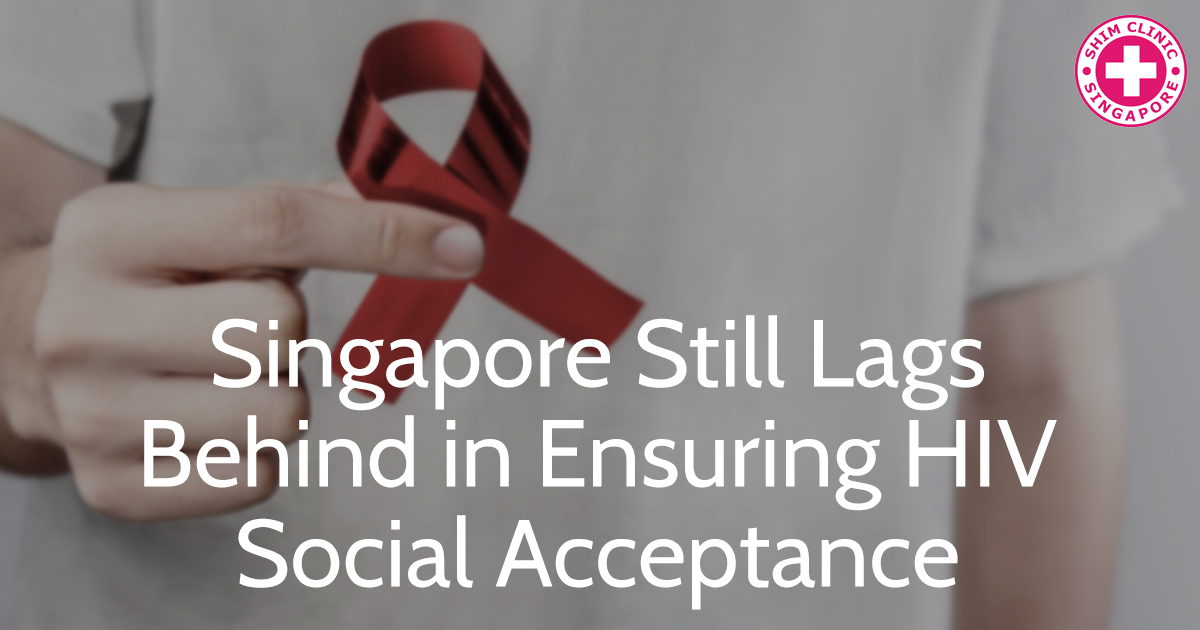HIV social acceptance in Singapore still lags behind, regardless of scientific advances and awareness campaigns. Once the HIV status of a person is known, they could face serious repercussions due to outdated beliefs.
A Channel Asia commentary report suggests that the rate of new HIV infections today has stabilised. It has even started to decline after a peak was reached in 2008. As of the end of 2017, 7,892 Singapore residents have been registered as HIV-positive. Of these individuals, 6,022 are still alive today.
Why Social Acceptance Remains Low?
So much has happened since the HIV epidemic in the 1980s. Scientific advances today mean that HIV is no longer a death sentence. Why does the stigma remain and why is social acceptance so low?
People who use innovative treatment methods can achieve viral suppression to an extent of making the risk of infection zero. Evidence suggests that such individuals do not pass the virus to their sexual partners even in the case of unprotected sexual encounters. Society, however, isn’t really aware of this fact and fears an eventual infection.
Singapore is still characterised by a high level of stigma, even among medical professionals.
Fear and prejudice stand in the way of accepting people who are HIV-positive. Such fears were typical for the early days of the HIV epidemic but unfortunately, the situation hasn’t changed that much. In a survey in 2007, only 54.1 per cent of Singaporeans said that they’re willing to care for a relative infected with HIV. In the same survey, only 22.4 per cent of Singaporeans said that they’d share a meal with an HIV infected person.
Another survey examined the attitudes of medical students.
The results were published in the Annals of the Academy of Medicine in Singapore and they show that 34 per cent of the medical students believe a person is to blame for their infection with HIV. Of all medical students questioned, 20 per cent reported they would not perform a surgery on an HIV-positive person.
False perceptions, the lack of information and societal pressures all stand in the way of more widespread acceptance. Scientific advances, however, mean that it’s about time for Singaporeans to start changing their mind set.
A Treatable Condition?
An infection with the HIV virus is no longer a death sentence, especially when HIV testing occurs early enough.
Recently, it became clear that a second person was cured from an HIV infection in the UK.
Advances in medical science have also enabled the development of HIV PEP and HIV PrEP.
HIV PEP or post-exposure prophylaxis is an anti-viral treatment protocol administered after unprotected sexual encounters. Studies suggest that PEP is incredibly effective when the treatment starts within 72 hours after exposure and continues daily for 28 days.
HIV PrEP or pre-exposure prophylaxis is a preventative measure that’s recommended to high risk individuals. The anti-viral medicine will once again have to be taken on a daily basis and when administered correctly, PrEP reduces the risk of getting HIV by more than 90 per cent in the case of unprotected sexual encounters.
These advances in medical science, as well as lifestyle changes recommended to high risk or HIV-positive individuals can make it possible for complete viral suppression. In that case, undetectable viral load will be achieved, making the HIV-positive individual incapable of passing the infection on.
People who are HIV-positive can now lead long and productive lives, being valuable members of society. Thus, society will have to catch up with the scientific advances and begin working more on acceptance.
Stigma stands in the way of more people getting tested and finding out that they’re HIV-positive early on. When HIV-positive individuals aren’t tested early on after the viral infection, the effectiveness of the treatment options will go down.
In addition, HIV-positive individuals are under a high level of stress because of the stigma. They’re not socially accepted, they feel isolated and abandoned. Poor mental health could contribute to depression and high risk of self-harm or suicide attempts.
Getting tested for HIV is easy.
STD Clinics like Shim Clinic offer reliable and effective HIV testing. Shim Clinic offers rapid testing that produces results within 20 minutes. Such a test can be administered three months after exposure to produce accurate results. Additional testing options are also available – SD HIV combo rapid test, DNA test, RNA test and Western blot test.
Shim Clinic also offers PEP and free of charge consultations to people who’d like to learn a bit more about the possibilities.

